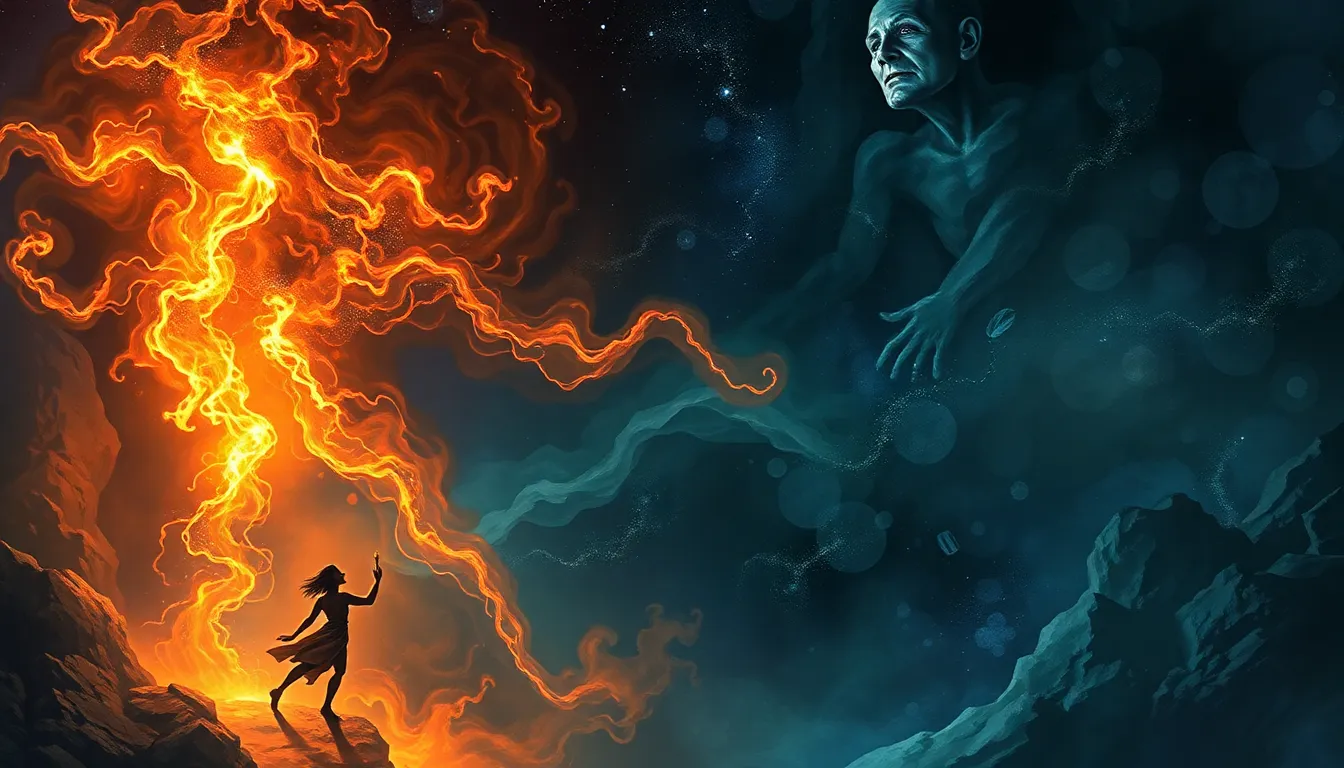VI. The Myth of Oduduwa and the Origins of Betrayal
One of the most prominent tales of betrayal in African mythology is the Yoruba myth of Oduduwa, the founder of the Yoruba people. According to the myth, Oduduwa was sent down from heaven to create the earth. As he descended, he was given a sack that contained the elements and tools necessary for his task. However, his wife, who accompanied him, was forbidden from looking inside the sack. Driven by curiosity, she opened the sack and the contents spilled out into the sea, creating the landmass of Africa. Oduduwa was furious at his wife's transgression and banished her to the forest. This story serves as a cautionary tale about the consequences of betrayal and the importance of adhering to divine instructions.
VII. The Trickster God Eshu and His Role in Betrayal
Eshu is a prominent deity in Yoruba mythology who is often associated with chaos, mischief, and betrayal. He is a master of deception and uses his cunning to trick others for his own amusement. In many folktales, Eshu is portrayed as a catalyst for betrayal, stirring up conflict and tempting individuals to act against their better judgment. His presence serves as a reminder of the ever-present threat of betrayal and the need for vigilance in dealing with others.
VIII. The Yoruba Story of Obatala and Oduduwa
Another significant myth involving betrayal in Yoruba mythology is the story of Obatala and Oduduwa. Obatala was the creator god who molded humans out of clay. After completing his task, he became tired and fell asleep. During his slumber, Oduduwa seized the opportunity to create his own kingdom. When Obatala awoke, he was surprised and enraged to find his rival had taken over his dominion. A bitter dispute ensued between the two gods, which ultimately led to war. This myth reflects the theme of betrayal of the cosmic order and the consequences of overstepping one's boundaries.
IX. The Redemption of Betrayal in African Narratives
While many African myths and folktales depict the destructive aspects of betrayal, they also acknowledge its transformative power. In some stories, betrayal can serve as a catalyst for growth and redemption. Characters who betray others may face consequences but are later given an opportunity to make amends and regain lost trust. This theme of redemption serves as a reminder that even the most serious transgressions can be forgiven and overcome with effort and repentance.
X. The Enduring Legacy of African Love and Betrayal Myths
The themes of love and betrayal in African mythology resonate deeply with African communities and continue to shape cultural values and beliefs. These myths are passed down through generations, ensuring that the collective history and wisdom of the African people are preserved. They offer cautionary tales about the dangers of betrayal and the transformative power of love. By studying and reflecting on these myths, we gain a deeper understanding of the human condition and the importance of compassion, trust, and forgiveness in our relationships.
FAQ
Question: What is the significance of love in African mythology?
Answer: Love is a fundamental and enduring theme in African mythology, reflecting the importance of human connection, community, and the bonds that unite us.
Question: How are the consequences of betrayal portrayed in African folktales?
Answer: Betrayal is often depicted as having dire consequences in African folktales, leading to broken relationships, conflict, and even exile.
Question: What is the role of trickster gods in African myths about love and betrayal?
Answer: Trickster gods, such as Eshu in Yoruba mythology, often play a significant role in stirring up conflict and tempting individuals to betray one another for their own amusement.
Question: Is there any hope for redemption after betrayal in African mythology?
Answer: While betrayal is portrayed as a serious transgression in African mythology, there is often a theme of redemption and the possibility of forgiveness and amends.



